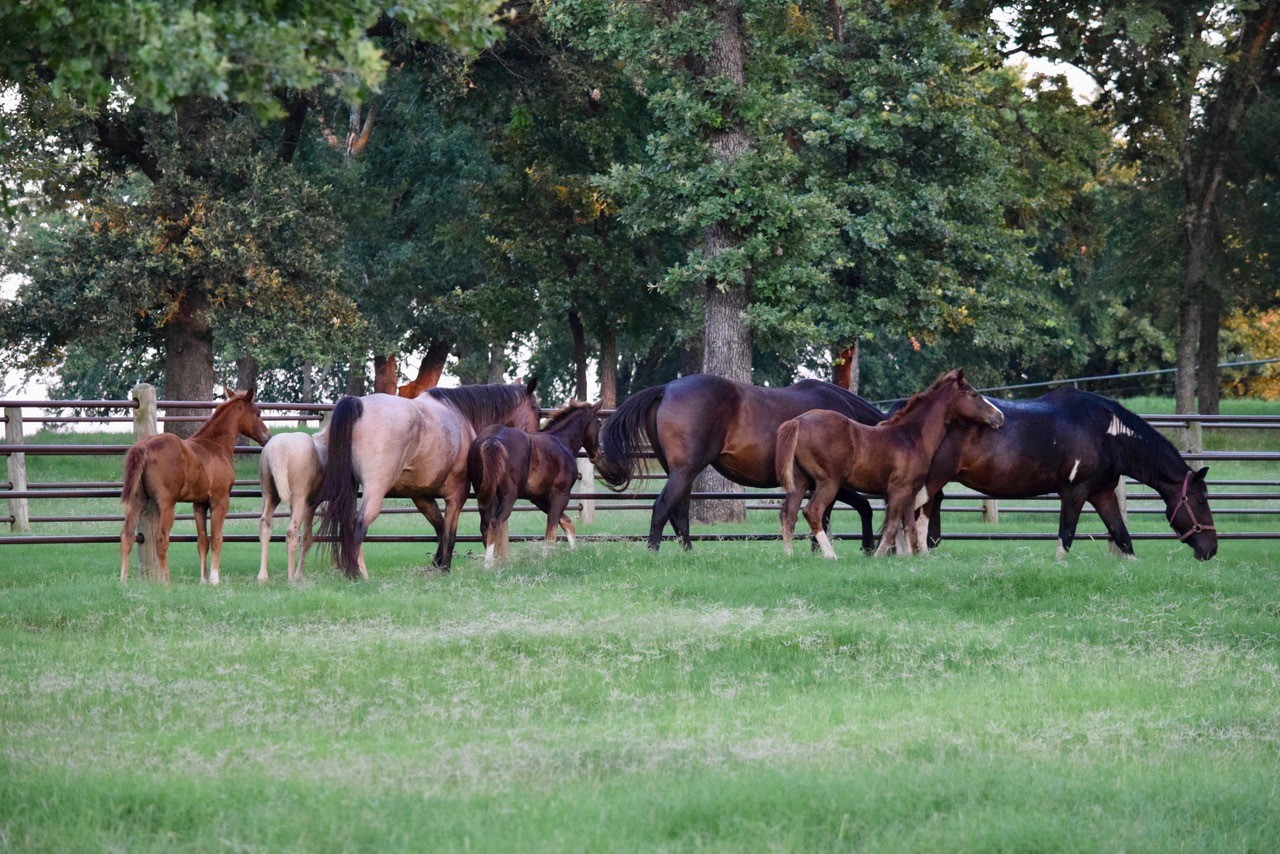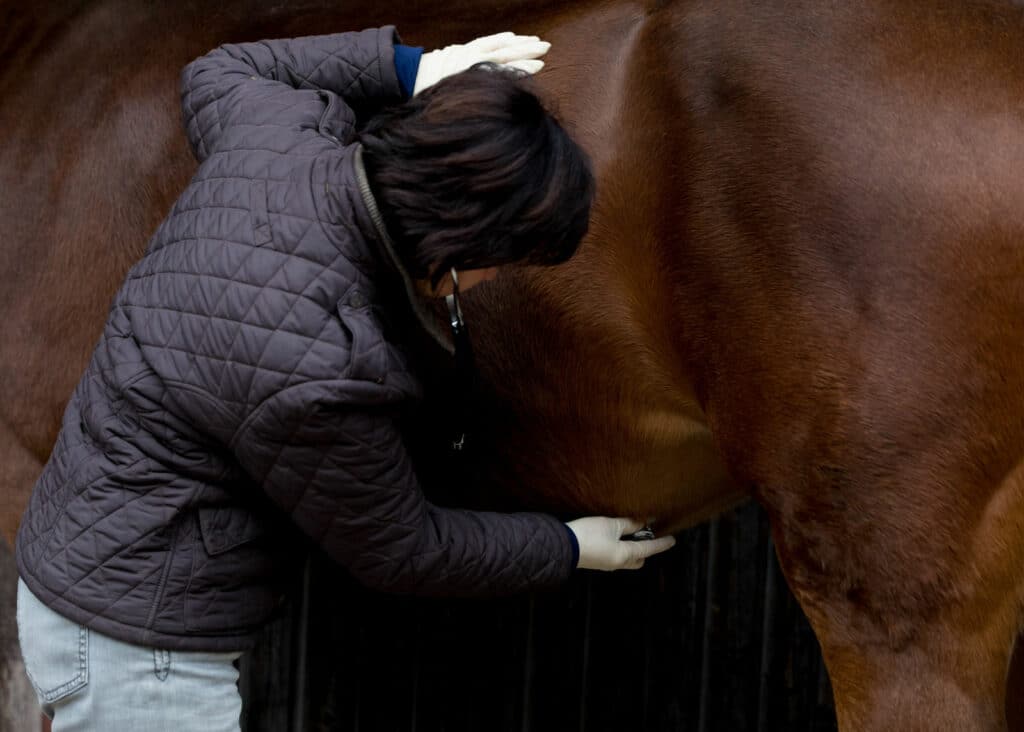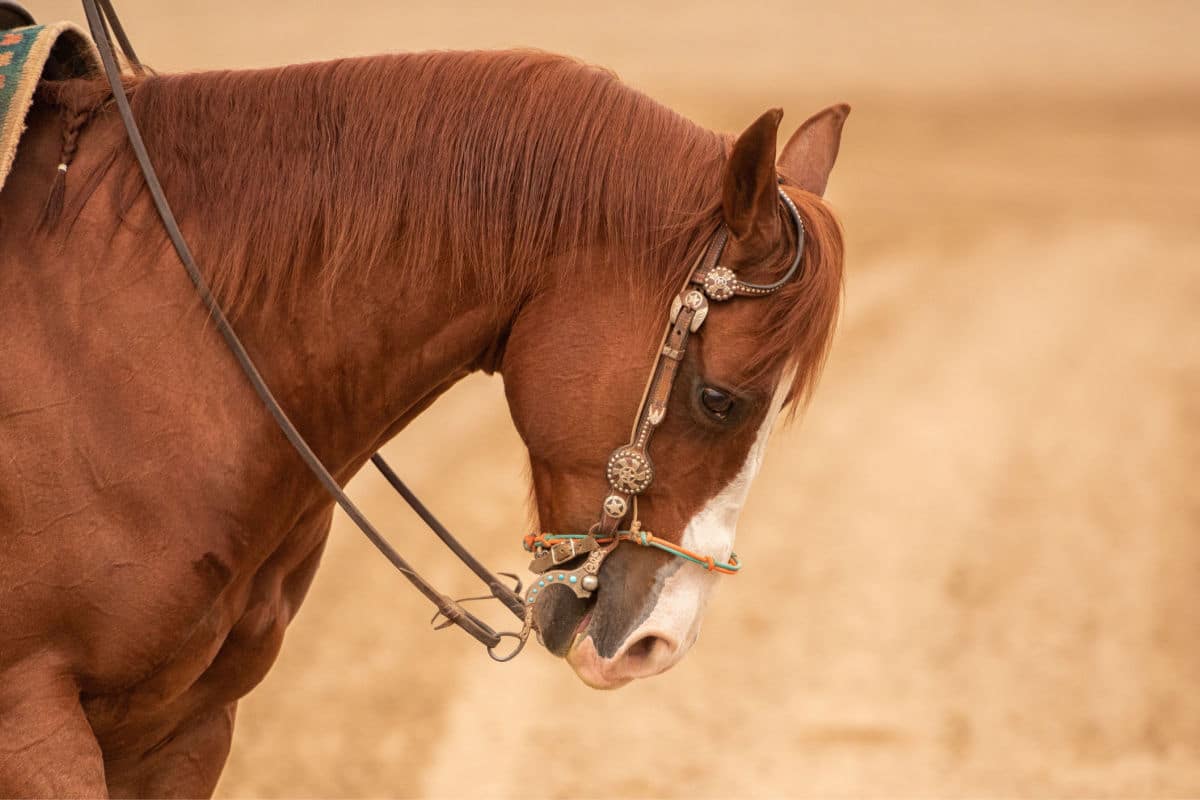In Monday Myths we debunk common misconceptions about a range of topics regarding equine digestive health and care. These are real statements made by real horse people. Have a question or topic you would like to see covered? Submit your idea here.
Statement: Gastric ulcers are much more prevalent in horses than colonic ulcers.
Today’s myth examines the common misconception that horses suffer from gastric ulcers much more frequently than from colonic ulcers. It’s true that gastric ulcers, or lesions in the stomach, are a very well-known and common occurrence – particularly among performance horses. But colonic ulceration, or lesions in the hindgut, though less widely known, does occur more often than many believe.
The Difference In How We Identify Gastric vs. Colonic Ulcers
Gastric ulcers are better understood and more commonly diagnosed for one reason: we can see them with an endoscope. This allows for both extensive research as well as a visually-confirmed diagnosis.
On the other hand, we have no way of visually confirming the presence of ulcers in a live horse’s colon. To perform a colonoscopy – or view the colon with an endoscope – would require the hindgut to be completely evacuated, which would be fatal to the horse. Only in recent years have tools, such as an equine fecal blood test, been developed that are capable of identifying colonic ulceration.
Research on Gastric vs. Colonic Ulcer Incidence in Horses
Our own peer-reviewed study, Results of a large scale necroscopic study of equine colonic ulcers, published in the March 2005 issue of the Journal of Equine Veterinary Science, indicated too-high incidences of both gastric and colonic ulcers in horses.
In 365 horses of a variety of sources:
- 55% had gastric ulcers
- 45% had colonic ulcers
In a group of 180 performance horses only:
- 87% had gastric ulcers
- 63% had colonic ulcers
- 54% had both
True, we did see a slightly higher rate of gastric ulceration in these horses. But a 10-20% difference between the two types isn’t much – especially when we see that 54% of the performance horses suffered from both stomach and hindgut ulcers. That’s one out of every two horses you see at a show or on the racetrack that is suffering from ulceration throughout its entire GI tract! Perhaps most alarming is that a full 97% of the horses in the second study (performance horses) had SOME type of ulcer – gastric, colonic, or both.
That 2005 study was not the end of it, though. We have continued in this research over the last 8 years, and in 6 studies of more than 1,000 horses we have seen a growing proportion of colonic ulcers verses gastric ulcers over time. (This research has been submitted to the Journal of Equine Veterinary Science for publication.) Colonic ulcers are a growing problem for the modern horse.
Colonic ulcers, inflammation of the hindgut (also known as colitis), hindgut acidosis, and even colic, are more common than many people realize. These hindgut conditions can be induced by what horses are typically fed and how they are managed. As such, hindgut issues are real risks that impact equine behavior, performance, and obviously health. Learn more about how we commonly manage horses and how it may affect the hindgut.
Gastric ulcers are more common than colonic ulcers = myth. The sensitive equine hindgut makes up the largest portion of the equine GI tract and is highly susceptible to ulcers and other conditions likely due to modern horse husbandry practices.



